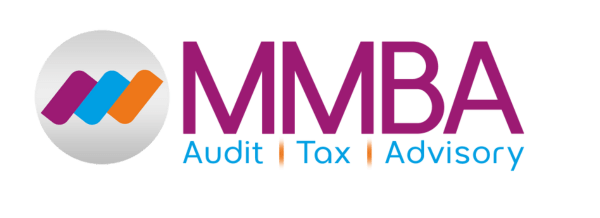
Recent Blog
Arrange a FREE Consultation Call and Let’s Discuss Your Goals!
If you are a landlord in the UK, it is important to understand your tax obligations. But a common question that everyone is concerned about is, “how to avoid paying tax on rental income?” While it’s not legal to evade tax, there are numerous legitimate strategies to reduce rental income tax. Moreover, through that, one can also minimise the overall tax liability. To help one improve the tax efficiency, one must seek help from an expert advisor, such as MMBA Accountants professional tax advisor.
This guide will walk you through the key methods to improve your tax efficiency and keep more of your hard-earned rental profits.
The goal isn’t to avoid paying tax illegally, but to use the tax rules to your advantage. This makes sure that you don’t pay a penny more than necessary.
Table of Contents
1. Declare the Rental Income Correctly
First things first, you must declare rental income to HMRC. Your taxable rental income is your annual rental income minus any allowable expenses. For your understanding, this net figure is what you pay income tax on. However, the specific tax implications are different as they depend on your total income and tax band.
2. The Power of Deducting Costs Legally
The most straightforward way to reduce tax is by fully deducting allowable expenses from your property income. These are the costs which are exclusively incurred for renting out the property. Key expenses related to your rental property include:
- Mortgage Interest Payments is a complex area. You can no longer deduct mortgage interest from your rental income directly. Instead, one can receive a tax credit based on 20% of your interest costs. This is particularly impactful for basic rate taxpayers.
- Letting Agent Fees
- Legal Fees for lets of a year or less or for renewing a lease for less than 50 years.
- Landlord Insurance
- Maintenance and Repairs (but not improvements)
- Utility Bills (if you pay them, e.g., gas, electricity, water)
- Council Tax
- Services like gardening or cleaning
- Advertising for New Tenants
- Relief on domestic items applies when one replaces furnishings, appliances, and kitchenware in a rented residential property.
By meticulously tracking these, any one can significantly lower the taxable income and, consequently, your landlord tax bill.
3. Utilise Your Tax-Free Allowances
Don’t forget your personal tax free allowance. For the 2024/25 tax year, you can earn £12,570 before paying any income tax. But, on the other hand, if anyone’s total income (including your rental income) is below this, then they won’t pay income tax on it.
There’s also the Property Income Allowance, which gives you a £1,000 tax-free allowance on property income. If your annual gross rental income is low, and you claim this, then this becomes even more simpler than deducting individual expenses.
4. Consider a Limited Company Structure
For landlords who have multiple properties or those who are planning to expand their property portfolio, due to investment properties through a limited company, this is going to become a game-changer.

Corporation Tax
Companies pay corporation tax on their profits. This tax is currently lower than higher rates of income tax.
Mortgage Interest Deductions
Unlike individual landlords, a company can deduct mortgage interest payments in full. That usually happens when they are calculating its taxable income.
Retaining Profits
You can retain profits within the company to reinvest in more properties. But, in this case, you only have to take a dividend when it’s tax-efficient for you.
However, if anyone is transferring a property that they already own into a company has consequences. This particularly triggers stamp duty land tax and a potential capital gains tax bill. Thus, one must seek professional advice first.
5. Plan for Capital Gains Tax (CGT)
If a person sells a rental property which is not his main home, then he will likely have to pay capital gains tax on the profit. Another thing is that you cannot avoid capital gains tax entirely, you can plan for it:
Utilise Annual Exemptions
Each individual has an annual CGT tax-free allowance.
Offset Costs
Always keep in mind to deduct costs of acquisition, improvement, and sale from the gain.
Business Asset Rollover Relief
If you sell one property and buy another for your rental business, then you may be able to defer capital gains tax.
Spouse Transfers
If you transfer a share of the property to your spouse, you can utilise both of your annual exemptions and lower tax bands.
6. Special Schemes: Furnished Holiday Lettings (FHL)
- Eligibility for capital allowances (on items like furniture and equipment) instead of the standard replacement relief.
- Potential treatment as a business for inheritance tax reliefs.
- The rules are strict, so check if your property meets the criteria or not.
Frequently Asked Questions
How can I reduce rental income tax on my property legally?
To reduce rental income tax on the property legally, you can claim allowable expenses, such as maintenance, letting fees, and mortgage interest tax relief. Moreover, you can also use tax allowances like the property income allowance or you can form a limited company because this can also lower your tax bill.
What are tax allowances for landlords in the UK?
The tax allowances for landlords are as follows. They can benefit from tax allowances such as the £12,570 personal allowance and the £1,000 property income allowance. These help offset future rental profits and this also reduce the overall taxable income from your rental property.
Can I claim domestic items relief on my rental property?
Yes, you can claim domestic items relief on your rental property. You can do that when you are trying to replace furniture, appliances, or kitchenware in your rental property. However, this only applies to replacement items, and not on initial purchases or property improvements.
Is it better to own multiple properties through a limited company?
Yes, it is better because owning multiple properties via a limited company can be tax-efficient. Companies can deduct full mortgage interest, pay lower corporation tax, and reinvest future profits. But if one transfer properties to a company, this may trigger stamp duty and capital gains tax.
What tax reliefs apply when selling a rental property?
The tax reliefs apply when you are selling a rental property because when you sell a rental property, you can reduce capital gains tax by using annual exemptions, offsetting improvement costs, or transferring ownership to a spouse. If it qualifies as a furnished holiday let, you may also claim capital allowances and other tax reliefs.


